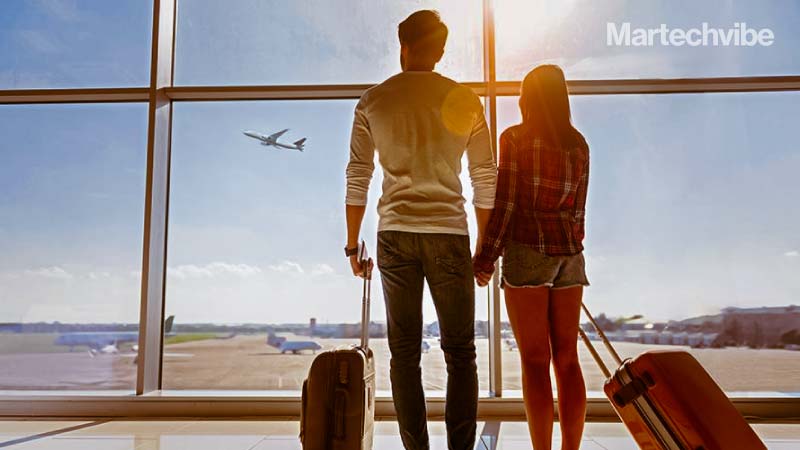EMEA Buyers Purchase 43% More Trips Than Last Year: Braze Travel Report
Global consumers are getting ready to travel again but remain cautious about vaccinations and health and safety measures. To better navigate the road to recovery, travel brands need a clear and consistent engagement plan that puts customer needs front and centre. These times of uncertainty will require consumer relationships to be rebuilt, but they also […]
Topics

Global consumers are getting ready to travel again but remain cautious about vaccinations and health and safety measures.
To better navigate the road to recovery, travel brands need a clear and consistent engagement plan that puts customer needs front and centre. These times of uncertainty will require consumer relationships to be rebuilt, but they also give brands a chance to stand out and gain lifelong loyalty—if they rise to the occasion.
Customer engagement platform Braze revealed findings from its newest data report Ready for Takeoff: 2021 Travel Industry Trends, Insights, and Strategies. The research includes findings from a survey of 9,500 consumers across 13 global markets conducted by Wakefield Research, which explored COVID-19’s impact on consumer behaviour, expectations, and sentiment around travel. In combination with proprietary data from Apptopia, Braze, and Skyscanner, the report provides guidance for how brands can successfully meet the challenges and opportunities that come next.
While the region is very focused on safety, EMEA travellers continue to remain budget-conscious as well.
- 78% say they are mostly/more focused on getting a good deal when it comes to travel.
- 79% said they rarely or never paid for travel upgrades pre-COVID.
Being budget-minded is more or less equal across generations—brand loyalty, on the other hand, is not.
- 81% of Gen Z and 75% of Millennials in EMEA favour specific travel and hospitality brands, compared to under 50% of Boomers.
- EMEA consumers are primarily focusing on European destinations when it comes to their future travel plans.
- They are booking significantly further in the future: Booking horizons for two-week trips currently come in at 91 days, while those for one-week trips average at 59 days.
Top Booked Destinations for EMEA Consumers
- Spain
- United States
- Turkey
- Greece
- United Kingdom
“With strong signs of a rebound, travel and hospitality brands must prioritise customer engagement in order to connect with new and old customers alike to drive business growth,” said Myles Kleeger, President and Chief Customer Officer of Braze. “The report proves that timely, relevant, and personalised cross-channel engagement strategies are more critical than ever for an industry poised for a comeback.”
Also Read: Divide Between Marketing Objectives and Data Infrastructure: Simon Data Report
Key findings from the report:
Health and Safety Can be a Dealbreaker
While the COVID-19 pandemic impacted many normal behaviours for consumers, one thing remains the same—travelers still want a good deal. We see this attitude reflected in how consumers describe themselves: 60 per cent of today’s travelers are budget-minded, while only 40 per cent are luxury-minded. However, the only factor more important than cost is safety. The survey showed that, when asked to rank the most important factors in choosing a travel company, 31 per cent of consumers put health and safety first, with those putting cost first slightly behind at 29 per cent.
Tread Lightly When it Comes to Vaccinations
Vaccinations are set to have a significant impact on the travel and hospitality industry as consumers begin to feel more safe to travel. According to the survey, 42 per cent of global travelers say they expect to carry proof of vaccination as a precaution, while 57 per cent say they are more likely to use a travel company that requires travelers to share their vaccination status. While 81 per cent of global travelers plan to get vaccinated against COVID-19, the response to vaccination requirements is much more nuanced. 21 per cent of consumers state they are unwilling to share their status with a travel company, with US travelers being the most unwilling (28 per cent), followed by EMEA (23 per cent), and APAC (16 per cent).
“It is highly likely that proof of vaccination or a recent negative COVID-19 test will be required by governments for anyone wanting to travel internationally for some time to come,” said Hugh Aitken, VP of Flights at Skyscanner. “Clear, consistent, and transparent communication about these new types of entry requirements will be essential for travel providers in order to provide a positive end-to-end experience for their customers.”








































































































